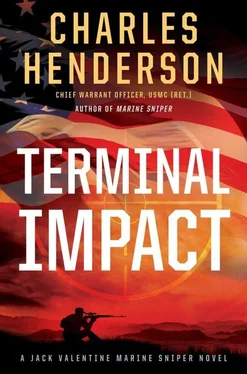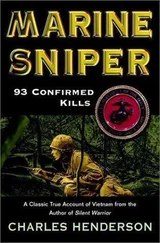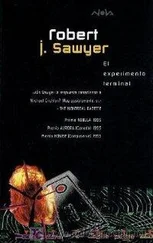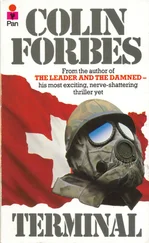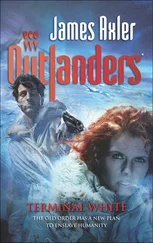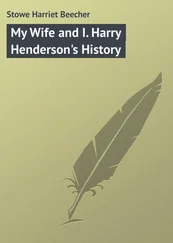Twenty miles northeast, First Sergeant Alvin Barkley kept a sergeant in his radio section tuned to Jack’s team’s frequency, paying attention to their reporting points, as they came in, and making sure the operations gunny had the eight-man MARSOC team’s positions and activities updated on his map. At the same time, the S2 recorded all the reconnaissance sightings that Jack and his Marines reported. Should shit hit the fan, a react team stood ready to respond and hopefully extract the eight Scout-Snipers intact if they could get to them in time.
Jack’s plan of going deep into the western desert and angling through the back door into their hunting grounds, on foot from the southwest, far from even remote populations, had effectively eliminated nearly every chance of barking dogs giving them away or watching eyes detecting them. No helicopters. No trucks. No Ospreys. No noise or flashing lights. They had slipped silently into the heart of these badlands as ghosts.
A golden moon rose over the eastern horizon as Jack and his boys settled into a line of hides that extended more than two miles along a rocky ridge above a dry rill that ran southeast, passing beneath MSR Bronze, where it ended at a bend on the Euphrates between Haqlaniyah and Haditha. Meandering parallel to this hardly noticeable rise of rocks and hard earth that followed the dry stream, a dirt road, crisscrossing other desert trails, likewise extended toward Syria, coming from the southeast, where it converged with other goat tracks networking the farms on the west side of the ancient Euphrates River, and extending from where the Marines lay to the northwest desert’s oblivion.
If Jack and the boys had to make a run for it, they planned to double-time down the dry streambed that gave them good footing and overhead cover while a straight shot to MSR Bronze and the river, some miles away. It would be a haul, running with a hundred pounds of gear on each man’s back, but it would have to do. Hopefully, Alvin Barkley and his reaction force would get to them in time if the proverbial shit hit the fan.
Scratched out of this cruel earth west of the Euphrates, all the way to Syria, over the centuries, little outposts had emerged at spots in the desert where sporadic and random deep wellsprings tapped into underground water and sustained life in this otherwise-lifeless place. For generations, dirt-poor families survived on these dirty plots, caretaking the precious water sources. Caravans going to and from Babylon to Damascus and the seaports of Beirut and Tyre or up to Homs and Aleppo, over thousands of years, camped at these waypoints, where a caretaker and his family provided refreshment and rest to weary travelers.
With the war, many of these families abandoned their poor existence, leaving their ancestral lands and precious water to belligerent strangers. Because of their far-flung obscurity, the outposts gave Abu Omar Bakr al-Nasser and his Jamaat Ansar al-Sunnah fighters excellent refuge in the midst of their surrounding American and Iraqi enemy forces. They lived much like the Apache and Comanche war bands did 150 years ago, fighting Texas Rangers, pioneer militias, and United States Cavalry in the American West.
The old graybeard Abu Omar had set up a number of garrison outposts in these deserted farms. In them he bunkered caches of arms and ammunition, far off the beaten path, and quartered in them his eclectic army of migrant jihadists who drifted here from all parts of the world.
Typically, these old places had large and often complex underground storage chambers and living quarters, dug and tunneled over the centuries. What might look aboveground like just a simple, stone-and-adobe enclave with a few meager animal shelters could in truth have a great area of underground facilities. They provided Abu Omar’s fighters a place of temperate comfort even in the harshest winters and most broiling summers.
Such was the outpost where Abu Omar and Zarqawi had dined a few nights ago, entertaining their war chiefs, and where Giti Sadiq and her Christian sisters, Amira and Miriam, and the Shia Muslim girl kidnapped in Syria, Sabeen, now labored in their slavery. Ironically, Jack Valentine and his crew had put themselves in a good position to see the various traffic routes going to and from this particular hole-in-the-wall enemy garrison.
Because she was Christian, Omar’s henchmen had not bothered to bury the body of the young formerly virgin girl, Lina, after Zarqawi had raped and murdered her. They just tossed her corpse in a ditch a hundred yards downwind from the house and barns, where they also dumped other rotting garbage. Now the scavenging rooks and ravens and jackals picked the flesh off her sad bones.
Two miles south of this house and the ditch where the dead girl, Lina, lay rotting, Gunny Valentine and Sergeant Quinlan made their hide. It sat at the far western end of the MARSOC team’s two-mile picket of four hides. If the wind blew just right, Jack and Cochise could catch a faint whiff of the scent of Lina’s decaying body. Yet in Iraq, the stench of death lay just about everywhere. To not smell death would get a man’s attention.
Bronco Starr and Jaws held a spot five hundred yards down the line, east, from the gunny and Cochise. After a wide gap, in the next hide, Sergeant Sammy LaSage ran the primary sniper gun and Corporal Petey Preston took his turn spotting. Cotton Martin held command at the other end of their line, with Chico Powell taking first turn on their bolt rifle while the staff sergeant manned the team’s Vigilance .338 Lapua Magnum semiautomatic support rifle.
Both Cotton and Jack had set up their light machine guns at arm’s reach, should the enemy discover their positions and make a run at them. They planned to defend and hold ground, calling in the artillery and the reaction force. However, if the Hajis came at them in large numbers, they would bug out, call artillery on their abandoned positions, and run like hell.
“It’s a plan full of holes and what-ifs,” Jack had admitted to Black Bart Roberts, who had reluctantly approved the idea. Gunny Valentine had assured him that the worst-case scenario could never happen. He and his Marine Scout-Snipers were just too good to get caught.
The reward, on the other hand, he had told Roberts, was worth the risk. The crisscrossing patchwork of camel trails and the caravan hideaways scattered across the vast badlands could offer his team a target-rich environment, and maybe a high-value kill, the gunny had speculated.
“If I’m the bad guys, this is where I’m disappearing,” Jack pitched. “They know we don’t have manpower to roll over every rock. And drones and planes don’t see everything. Me and my boys can. We’ll be fine, sir. Trust me.”
At dawn, Jack took his first shot. A Haji on a Honda.
All night, the sniper teams had heard the sounds of car engines and truck engines and a lot of motorcycle engines. Vehicles moving far to the west of them, going north, then turning east, just beyond the horizon. The dead man with the rifle, riding the motorcycle, represented the net result of all their efforts.
Gunny Valentine had anticipated that with the busy crosshatch of camel trails, roads, and cross-country tracks across their killing zone, the night would have proven much busier. Prime real estate, he thought, given the busy road a mile to their south called T1, a straight shot out of Haqlaniyah westward to the south side of the town of al-Qa’im on the Syrian border, and the even busier MSR Bronze, Iraqi Highway 12, that ran several miles to their east and turned north, running along the Euphrates, also to Qa’im and Syria, entering the town on its north side.
When the Haji on the Honda broke over the horizon, he had blazed across the desert full-out, racing straight across their frontage, a thousand yards out, like a duck in a shooting gallery.
Читать дальше
